Have you ever wondered how the ancient practice of astrology and the concept of zodiac signs came to be? The history and origins of zodiac signs are shrouded in mystery and fascination, taking us back thousands of years to ancient civilizations that believed in the powerful influence of the stars and planets on human lives. From the birth of astrology in ancient Mesopotamia, to the development of the twelve zodiac signs we know today, this deep dive into the history of zodiac signs will take you on a captivating journey through time. We will explore the influences of ancient cultures such as the Babylonians and the Greeks, as well as the development of zodiac signs in different cultures around the world, including the Chinese, Hindu, and Celtic zodiac systems. Join us as we unravel the secrets and controversies surrounding zodiac signs, delve into the personality traits associated with each sign, and examine the scientific validity of astrology in today’s world. So, sit back, relax, and prepare to embark on a celestial journey through the intriguing origins and fascinating influence of zodiac signs.
What are Zodiac Signs?

Zodiac signs are a fundamental component of astrology, representing twelve different divisions of the celestial sphere. Each zodiac sign is associated with specific dates that correspond to the Sun’s position at the time of a person’s birth. These signs are primarily based on the ecliptic, the Sun’s yearly path across the sky, divided into equal segments of 30 degrees. The twelve zodiac signs are Aries, Taurus, Gemini, Cancer, Leo, Virgo, Libra, Scorpio, Sagittarius, Capricorn, Aquarius, and Pisces, each with its own unique characteristics and traits. These signs are often represented by symbols or glyphs that reflect the mythology and symbolism associated with them. While the sun sign is the most commonly recognized zodiac sign, astrology also takes into account other factors such as the person’s rising sign and the positions of other planets at the time of their birth. These additional components provide deeper insight into an individual’s personality and life experiences. Understanding zodiac signs can offer a glimpse into aspects of a person’s identity, relationships, and life path, making astrology a powerful tool for self-exploration and personal growth. To learn more about the evolution of zodiac signs over time, you can read our article on the evolution of zodiac signs. Additionally, if you are interested in the relevance of zodiac signs in relation to astrological houses, our article on the significance of astrological houses and zodiac signs explores this topic further.
The Origins of Zodiac Signs
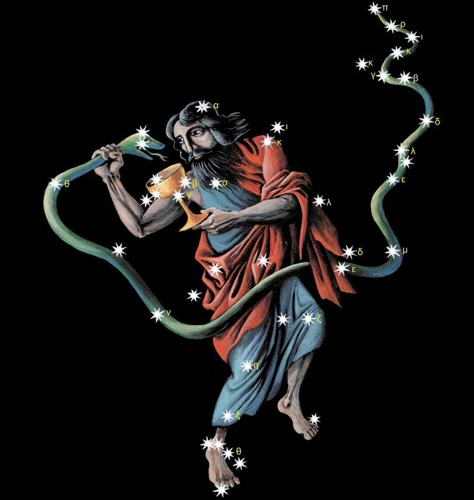
The origins of zodiac signs can be traced back to ancient civilizations that developed different systems of astrology. One of the earliest records of astrology can be found in ancient Mesopotamia, where the movement of celestial bodies was studied and correlated with earthly events. The Babylonians further advanced the concept of astrology by creating the Babylonian Zodiac, which divided the celestial sphere into twelve equal parts, each associated with specific constellations. The influence of ancient Greece on the development of zodiac signs is also significant, as Greek astronomers and philosophers expanded upon the Babylonian system and assigned distinct personality traits and characteristics to each zodiac sign. This laid the foundation for the twelve zodiac signs as we know them today. To delve deeper into the significance of zodiac signs, including the impact of sun signs and rising signs in astrology, refer to our article on the significance of sun signs and rising signs in astrology.
Ancient Mesopotamia and the Birth of Astrology
Ancient Mesopotamia, which existed around 2000 BCE, is credited with the birth of astrology, marking the beginning of humanity’s fascination with the stars and their influence on earthly affairs. The Mesopotamians, particularly the Babylonians, developed a sophisticated system of celestial observations and interpretations. They believed that the movements and positions of the celestial bodies could provide valuable insights into human behavior, the world, and even the future. Astrology in Mesopotamia was closely tied to religious practices, as the Babylonians worshipped an extensive pantheon of gods and believed that celestial events were divine messages. Priests known as “Chaldeans” were the custodians of astrology and held great importance in society. They meticulously recorded and interpreted celestial phenomena, making astronomical observations to predict crop yields and guide the decisions of kings and rulers. Mesopotamian astrology laid the foundation for the development of zodiac signs and their association with specific celestial points along the ecliptic. It is fascinating to see how this ancient civilization’s interest in astrology has shaped and influenced astrology as we know it today.
The Babylonian Zodiac and the Emergence of Zodiac Signs
The Babylonian civilization played a crucial role in the development and emergence of zodiac signs. The Babylonians were keen observers of the sky and had a deep belief in the connection between celestial events and earthly affairs. They divided the ecliptic into twelve equal sections, forming the foundation for what would later become the zodiac signs we know today. Each of these divisions corresponded to a specific constellation and was associated with different mythological figures, such as the Ram, the Bull, and the Lion.
The Babylonians used these twelve zodiac signs for a variety of purposes, including determining the passage of time and predicting significant events. They believed that the position of the planets and stars at the time of a person’s birth influenced their personality traits and their destiny. This laid the groundwork for the concept of astrology and the notion that celestial bodies have a profound impact on human lives.
The Babylonian zodiac eventually spread to other ancient cultures, including the Greeks and Romans, who adopted and modified it to suit their own beliefs and cosmology. The Babylonian influence on the emergence of zodiac signs cannot be overstated, as it established the prototype for the system that remains in use to this day. Thus, the connection between celestial phenomena and human existence was firmly established thanks to the Babylonians’ pioneering efforts.
Ancient Greek Influence on Zodiac Signs
Ancient Greek culture played a significant role in shaping the concept of zodiac signs as we know them today. The Greeks built upon the foundations laid by the Mesopotamians and made important contributions to astrology and zodiac symbolism. The Greek philosopher Pythagoras is believed to have contributed to the development of astrology and the understanding of celestial patterns. However, it was the Hellenistic period that saw the greatest advancements in astrology. During this time, Greek astronomers and astrologers began associating specific qualities and characteristics with each zodiac sign. They assigned elements to the signs, such as fire, earth, air, and water, which added another layer of symbolism. The Greek astrologer Ptolemy played a pivotal role in codifying astrological knowledge in his work called the “Tetrabiblos.” Ptolemy’s work provided a systematic framework for understanding zodiac signs, their meanings, and their influence on human lives. The Greek influence on zodiac signs extended beyond astrology as well. The Greek myths and legends, such as the story of Hercules and the 12 labors, became intricately linked with the zodiac signs. These stories added depth and narrative to the signs, further enhancing their symbolism and significance. Today, the ancient Greek influence can still be seen in how zodiac signs are perceived and interpreted. The Greek influence on zodiac signs is a testament to the enduring impact of their rich culture and intellectual legacy.
The Development of the Zodiac Sign System
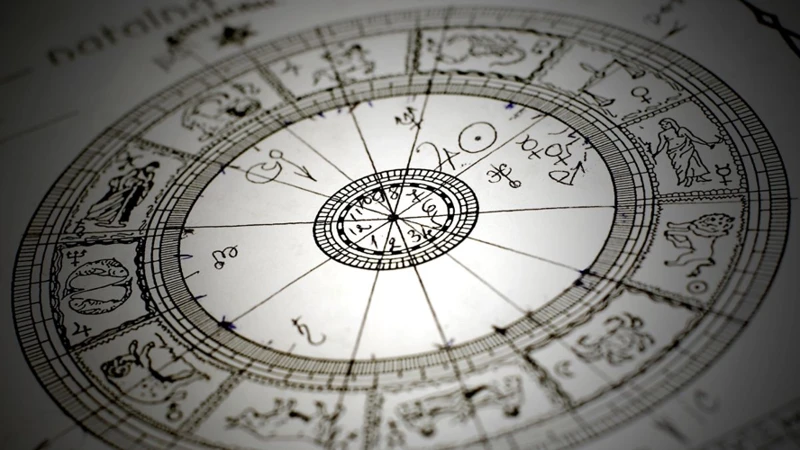
The development of the zodiac sign system has undergone a fascinating evolution throughout history. The twelve zodiac signs as we know them today have roots in ancient civilizations that observed and interpreted celestial movements. Over time, different cultures have contributed to the refinement and standardization of this system. The foundation of the zodiac signs can be attributed to the influential work of Claudius Ptolemy, a Greek astronomer and astrologer from the 2nd century CE. Ptolemy’s book, the “Tetrabiblos,” introduced a comprehensive framework for categorizing individuals based on their birth chart, which included the placement of the sun, moon, planets, and other celestial bodies at the time of their birth. This system provided a deeper understanding of an individual’s personality traits and life experiences, laying the groundwork for the wide-scale acceptance and popularity of astrology today. As astrology has evolved and adapted to different cultural contexts, the zodiac sign system has remained a central component, offering insights into the human psyche and the interconnectedness of cosmic forces.
The Twelve Zodiac Signs as We Know Them Today
The twelve zodiac signs as we know them today have a rich history and symbolism. These signs form the basis of modern Western astrology and are widely recognized and studied. The zodiac signs are organized in a specific sequence, starting with Aries and ending with Pisces. Each sign is characterized by a unique set of qualities and traits that are thought to influence a person’s personality, behavior, and interactions with others. Here is a brief overview of the twelve zodiac signs:
1. Aries (March 21 – April 19): Aries is a fire sign known for its passionate and assertive nature. People born under this sign are often courageous, driven, and independent.
2. Taurus (April 20 – May 20): Taurus is an earth sign associated with stability and practicality. Taureans are known for their determination, reliability, and love for the finer things in life.
3. Gemini (May 21 – June 20): Gemini is an air sign represented by the symbol of twins. Geminis are curious, adaptable, and excellent communicators who embrace diversity and change.
4. Cancer (June 21 – July 22): Cancer is a water sign known for its emotional depth and nurturing qualities. Individuals born under this sign are intuitive, empathetic, and deeply connected to their loved ones.
5. Leo (July 23 – August 22): Leo is a fire sign associated with leadership and creativity. Leos are confident, charismatic, and have a natural flair for the dramatic.
6. Virgo (August 23 – September 22): Virgo is an earth sign known for its practicality and attention to detail. Virgos are analytical, hardworking, and have a desire for perfection.
7. Libra (September 23 – October 22): Libra is an air sign represented by the scales. Librans value harmony, fairness, and balance and strive for diplomatic solutions in relationships and partnerships.
8. Scorpio (October 23 – November 21): Scorpio is a water sign associated with intensity and transformation. Scorpios are passionate, mysterious, and deeply connected to their emotions.
9. Sagittarius (November 22 – December 21): Sagittarius is a fire sign known for its adventurous spirit and broad-mindedness. Sagittarians are optimistic, philosophical, and constantly seeking knowledge and new experiences.
10. Capricorn (December 22 – January 19): Capricorn is an earth sign associated with ambition and responsibility. Capricorns are practical, disciplined, and determined to achieve their goals.
11. Aquarius (January 20 – February 18): Aquarius is an air sign known for its independent and humanitarian nature. Aquarians are innovative, intellectual, and value individuality and social justice.
12. Pisces (February 19 – March 20): Pisces is a water sign associated with empathy and imagination. Pisceans are compassionate, artistic, and deeply connected to their emotions and spirituality.
These twelve zodiac signs provide a framework for understanding the different strengths, weaknesses, and characteristics of individuals. However, it is important to remember that astrology is not deterministic and should be taken as a guide rather than a fixed template for personality and behavior.
The Influence of Ptolemy on the Zodiac Sign System
Ptolemy, a renowned Greek mathematician, astronomer, and astrologer, had a significant influence on the development and refinement of the zodiac sign system. His work, known as the Tetrabiblos, became a foundational text in astrology. Ptolemy’s contribution to the zodiac sign system primarily revolved around his emphasis on the twelve equal divisions of the zodiac, which we recognize today. He believed that these twelve divisions were fundamental in understanding the influence of celestial bodies on human life. Ptolemy also introduced the concept of rulership or domicile, assigning specific planets to govern each zodiac sign based on their characteristics and energies. For example, he associated Mars with Aries, Venus with Taurus, and so on. These planetary associations further enhanced the understanding of zodiac signs and their astrological significance. Ptolemy’s system emphasized the importance of interpreting the positions and aspects of planets in relation to the zodiac signs, forming the basis for modern astrological practices. His profound influence on astrology extended beyond the zodiac sign system and played a vital role in establishing astrology as a respected discipline.
Zodiac Signs in Different Cultures
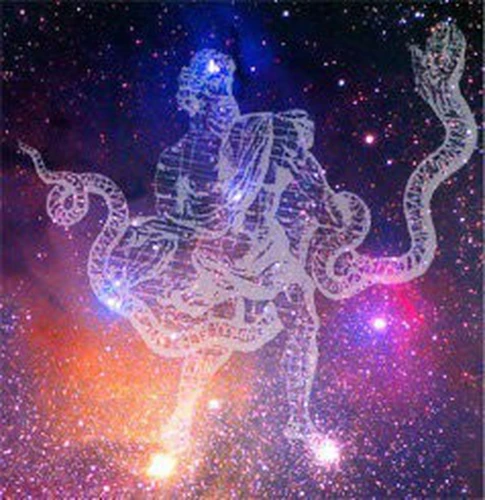
Zodiac signs have not only influenced Western astrology but have also been embraced and interpreted differently in various cultures around the world. In Chinese astrology, for example, the Chinese Zodiac consists of twelve animal signs, each corresponding to a specific year and representing different personality traits. The Hindu zodiac, known as the “Rashi,” is based on the Moon’s position at the time of birth and is divided into twelve signs associated with different deities and ruling planets. The Celtic zodiac, also known as the Druid Zodiac, has thirteen signs based on trees and their symbolism. Each Celtic zodiac sign carries distinct characteristics and represents a different time of the year. These diverse cultural interpretations of zodiac signs offer fascinating insights into how astrology has evolved and adapted across different civilizations. It highlights the universality of human fascination with the stars and their impact on our lives.
The Chinese Zodiac
The Chinese Zodiac, also known as Shengxiao or the “Circle of Animals,” has a rich history and deep cultural significance. Unlike the Western zodiac signs based on the positions of the Sun, the Chinese Zodiac is based on a twelve-year cycle, with each year being associated with a specific animal sign. The twelve animal signs in the Chinese Zodiac are the Rat, Ox, Tiger, Rabbit, Dragon, Snake, Horse, Sheep, Monkey, Rooster, Dog, and Pig. Each animal sign is believed to possess certain traits and characteristics that influence the personality and destiny of individuals born during that year. These animal signs are also associated with one of the five elements – Wood, Fire, Earth, Metal, and Water – which further adds complexity to the Chinese Zodiac system. The Chinese Zodiac plays a significant role in Chinese culture, influencing everything from astrology and fortune-telling to personal relationships and even government policies. It is especially popular during Chinese New Year celebrations where each year is celebrated with vibrant festivities corresponding to the animal sign of that year. Understanding the Chinese Zodiac can provide insights into one’s compatibility with others, career choices, and overall life path. It is a fascinating system deeply rooted in Chinese tradition and folklore.
The Hindu Zodiac
In Hindu astrology, the zodiac system plays a significant role in interpreting celestial influences on human lives. The Hindu zodiac, known as the “Rashi,” consists of twelve signs, similar to Western astrology. Each sign, or Rashi, is associated with a specific constellation, ruling planet, and element. The Hindu zodiac signs are Mesh (Aries), Vrishabha (Taurus), Mithuna (Gemini), Karka (Cancer), Simha (Leo), Kanya (Virgo), Tula (Libra), Vrishchika (Scorpio), Dhanu (Sagittarius), Makar (Capricorn), Kumbha (Aquarius), and Meena (Pisces). Unlike Western astrology, which primarily focuses on the Sun’s position, Hindu astrology considers the Moon’s position at the time of birth as the primary determinant of a person’s Rashi. The Hindu zodiac system is deeply intertwined with aspects of Vedic astrology, which takes into account the individual’s birth chart and planetary alignments to provide detailed insights into their personality, strengths, weaknesses, and life path. It is believed that each Rashi carries specific qualities and characteristics that influence a person’s behavior, preferences, and destiny. The Hindu zodiac and its interpretations have been passed down through generations in ancient texts such as the Brihat Parashara Hora Shastra. This system continues to be widely studied and consulted for guidance in various aspects of life, including marriage, career, health, and spirituality. The Hindu zodiac offers a rich and intricate framework for understanding the complexities of human existence within the cosmic realm.
The Celtic Zodiac
The Celtic Zodiac, also known as the Druid Zodiac, is a unique astrological system that originated from the ancient Celtic people of Ireland, Scotland, and Wales. Unlike the traditional zodiac signs based on the Sun’s position, the Celtic Zodiac is connected to the lunar calendar and consists of thirteen signs, each associated with a specific tree. The Celtic people had a deep reverence for nature and believed that trees held spiritual wisdom and symbolism. Each tree sign in the Celtic Zodiac represents different personality traits, qualities, and aspects of life. Here are the thirteen tree signs of the Celtic Zodiac, along with their corresponding dates and key characteristics:
1. Birch (December 24 – January 20): Represents beginnings, renewal, and adaptability.
2. Rowan (January 21 – February 17): Symbolizes vision, protection, and inspiration.
3. Ash (February 18 – March 17): Signifies harmony, creativity, and sensitivity.
4. Alder (March 18 – April 14): Represents courage, determination, and leadership.
5. Willow (April 15 – May 12): Symbolizes intuition, psychic abilities, and flexibility.
6. Hawthorn (May 13 – June 9): Signifies passion, creativity, and emotional depth.
7. Oak (June 10 – July 7): Represents strength, stability, and loyalty.
8. Holly (July 8 – August 4): Symbolizes power, protection, and ambition.
9. Hazel (August 5 – September 1): Signifies wisdom, knowledge, and inspiration.
10. Vine (September 2 – September 29): Represents charisma, charm, and vitality.
11. Ivy (September 30 – October 27): Symbolizes independence, transformation, and growth.
12. Reed (October 28 – November 24): Signifies intuition, insight, and adaptability.
13. Elder (November 25 – December 23): Represents compassion, transformation, and healing.
The Celtic Zodiac provides a unique perspective on astrology, offering a deep connection to the natural world and the qualities associated with each tree sign. Exploring your Celtic Zodiac sign can provide insight into your strengths, weaknesses, and potential for personal growth. By understanding the symbolism and characteristics of each tree sign, you can gain a greater understanding of yourself and your place in the world.
The Personality Traits of Zodiac Signs
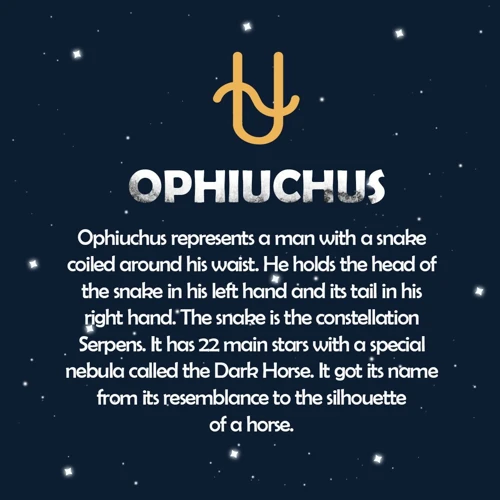
Understanding the personality traits associated with each zodiac sign can provide valuable insights into a person’s character, behavior, and tendencies. While it’s important to remember that astrology is not a precise science, the zodiac sign can offer a general overview of someone’s personality. Here is a breakdown of the personality traits commonly associated with each zodiac sign:
1. Aries (March 21 – April 19): Dynamic, courageous, competitive, and ambitious. Aries individuals are known for their boldness and leadership qualities.
2. Taurus (April 20 – May 20): Reliable, patient, loyal, and sensual. Taureans value stability and are often practical and grounded.
3. Gemini (May 21 – June 20): Adaptable, curious, sociable, and witty. Geminis are known for their versatility and excellent communication skills.
4. Cancer (June 21 – July 22): Emotional, nurturing, intuitive, and protective. Cancerians are highly sensitive and compassionate individuals.
5. Leo (July 23 – August 22): Confident, passionate, generous, and charismatic. Leos love the limelight and have a natural ability to inspire others.
6. Virgo (August 23 – September 22): Practical, analytical, responsible, and perfectionistic. Virgos are detail-oriented and strive for excellence in everything they do.
7. Libra (September 23 – October 22): Harmonious, diplomatic, romantic, and cooperative. Librans seek balance and are often skilled at conflict resolution.
8. Scorpio (October 23 – November 21): Persistent, intuitive, magnetic, and passionate. Scorpios are known for their depth of emotions and intense nature.
9. Sagittarius (November 22 – December 21): Optimistic, adventurous, intellectual, and straightforward. Sagittarians have a thirst for knowledge and a love for freedom.
10. Capricorn (December 22 – January 19): Ambitious, disciplined, responsible, and practical. Capricorns are focused on their goals and have a great sense of responsibility.
11. Aquarius (January 20 – February 18): Progressive, independent, intellectual, and humanitarian. Aquarians are often seen as eccentric and have a strong desire for social justice.
12. Pisces (February 19 – March 20): Compassionate, imaginative, intuitive, and artistic. Pisceans are highly empathic and have a deep connection to their emotions and creativity.
It’s important to note that these personality traits are not definitive and can vary depending on an individual’s unique birth chart, which takes into account other factors such as the rising sign, moon sign, and the positions of other planets. Exploring your zodiac sign’s personality traits is just one way to gain a better understanding of yourself and those around you.
How are Zodiac Signs Determined?
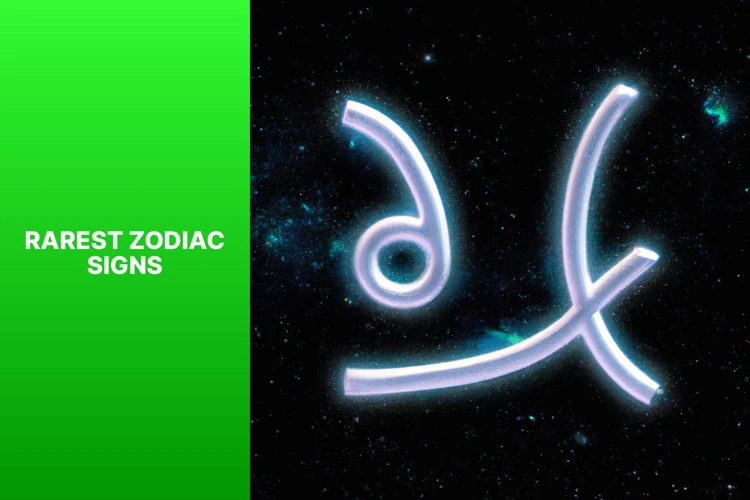
Zodiac signs are determined based on the position of the Sun at the time of a person’s birth. The precise moment of someone’s birth is essential for accurate determination. To determine a person’s zodiac sign, astrologers use an astrological chart, also known as a birth chart or natal chart. This chart is a map of the sky at the exact time and place of birth, which includes the positions of the Sun, Moon, planets, and other celestial bodies.
In the birth chart, the Sun’s position is of primary importance. The Sun represents the core essence of an individual’s personality and is considered the most significant placement in the chart. The zodiac sign that the Sun was in at the time of birth becomes the person’s sun sign or star sign, which is the sign most people are familiar with.
The Sun’s position is determined by its placement in one of the twelve zodiac constellations along the ecliptic. Each zodiac sign spans 30 degrees of the ecliptic, with transitions occurring around the 20th or 21st of each month. For example, if someone is born between March 21st and April 19th, their zodiac sign is Aries.
While the Sun sign is the most well-known component, it is not the only factor considered in astrology. The positions of other celestial bodies, such as the Moon, Mercury, Venus, Mars, and the outer planets, also influence a person’s astrological profile. These planetary positions add depth and nuance to the interpretation of a person’s character, emotions, relationships, and life experiences.
To determine all the factors necessary for constructing a birth chart, astrologers rely on accurate birth information, including the date, time, and location of birth. Even a slight difference in birth time or location can result in a different chart and potentially alter the zodiac sign placements.
Zodiac signs are determined by the position of the Sun at the time of a person’s birth. The Sun’s position in one of the twelve zodiac constellations along the ecliptic determines a person’s sun sign. However, a comprehensive birth chart takes into account the positions of other celestial bodies to provide a more detailed understanding of an individual’s astrological profile.
Controversies and Disagreements
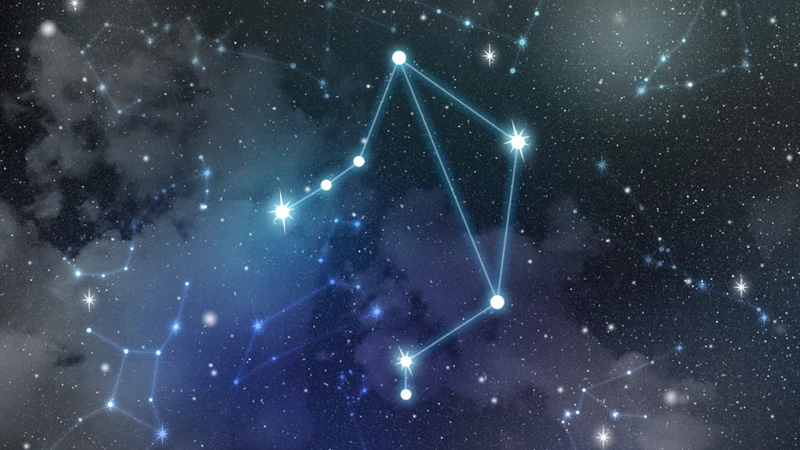
Controversies and disagreements surround the field of astrology and zodiac signs, with differing opinions on their validity and accuracy. One prominent controversy revolves around the inclusion of a 13th zodiac sign called Ophiuchus, which falls between Scorpio and Sagittarius. Some argue that Ophiuchus should be recognized as a legitimate zodiac sign, while others reject its inclusion. Another point of contention is the impact of astrological precession, the gradual shifting of the Earth’s axis over time, which some claim requires a recalibration of the zodiac sign dates. This disagreement adds further complexity to the interpretation and accuracy of horoscopes and birth charts. Despite these controversies, astrology continues to captivate and intrigue many individuals who find meaning and guidance in the study of zodiac signs.
Ophiuchus: The Forgotten Zodiac Sign
Ophiuchus, often referred to as the forgotten zodiac sign, is an intriguing addition to the traditional twelve zodiac signs. Represented by the symbol of a serpent bearer, Ophiuchus is positioned between Scorpio and Sagittarius in the zodiac. Despite its historical significance, Ophiuchus is not widely recognized or included in mainstream astrology.
The origins of Ophiuchus can be traced back to ancient Greek mythology. In Greek mythology, Ophiuchus represents the figure of Asclepius, the god of medicine and healing. Asclepius was known for his incredible knowledge and skills in the field of medicine, and he was associated with serpents due to their renewal and rejuvenation abilities.
The inclusion of Ophiuchus as a zodiac sign would alter the current dates and duration of the other zodiac signs. Ophiuchus would occupy the space between November 29 and December 17, overlapping with the traditional zodiac sign of Sagittarius. Those born during this time would possess the traits associated with Ophiuchus, which are believed to include wisdom, healing abilities, and a strong connection to spirituality.
However, it is important to note that Ophiuchus is not officially recognized by most astrologers and is not commonly included in horoscopes or astrological readings. This omission is due to the development and standardization of the zodiac sign system over centuries. Despite its exclusion from mainstream astrology, Ophiuchus continues to gain interest and curiosity among astrology enthusiasts who seek to explore its unique attributes and connection to ancient mythology.
Astrological Precession and its Impact
Astrological precession is a fascinating phenomenon that has a significant impact on the study of astrology and zodiac signs. It refers to the gradual shift in the Earth’s axis over time, causing a change in the position of the stars and constellations as observed from Earth. This shift is caused by the gravitational pull of the Moon and the Sun on the Earth’s equatorial bulge, resulting in a slow wobble in the Earth’s rotation. The effects of astrological precession are especially important when it comes to determining the zodiac sign associated with a particular birth date. Due to precession, the alignment of the stars has changed since the creation of the zodiac system thousands of years ago. This means that the zodiac signs we are familiar with today do not align exactly with the constellations they were named after. For example, if someone is born on March 21st, they are traditionally considered to be an Aries. However, due to precession, their date of birth now corresponds to the constellation of Pisces. This discrepancy has led to debates and disagreements among astrologers regarding the accurate alignment of zodiac signs. Despite these discrepancies, many astrologers continue to use the traditional zodiac sign dates for interpretation and analysis. It is important to note that the influence of precession does not invalidate astrology as a whole but rather adds another layer of complexity to its study. By understanding the impact of astrological precession, astrologers can adapt their interpretations to consider the shifting positions of the stars and provide more accurate readings for individuals. This ongoing evolution of the zodiac sign system highlights the dynamic nature of astrology and its connection to the ever-changing cosmos.
Zodiac Signs and Personalities

Zodiac signs have long been associated with specific personality traits and characteristics. While it is important to remember that personality is influenced by many factors, including upbringing and life experiences, astrology suggests that the position of celestial bodies at the time of our birth can provide insight into our inherent tendencies and behaviors. Here is a breakdown of the twelve zodiac signs and their commonly associated personality traits:
1. Aries (March 21 – April 19): Aries individuals are known for their assertiveness, courage, and leadership qualities. They tend to be confident, energetic, and competitive, always eager to take on new challenges.
2. Taurus (April 20 – May 20): Those born under Taurus are often reliable, practical, and determined. They are known for their patience, loyalty, and love for the finer things in life.
3. Gemini (May 21 – June 20): Geminis are versatile, curious, and adaptable. They have a gift for communication and enjoy socializing. They are intellectually inclined and love to learn new things.
4. Cancer (June 21 – July 22): Cancerians are sensitive, nurturing, and empathetic. They are known for their strong intuition and emotional depth. Family and home are of utmost importance to them.
5. Leo (July 23 – August 22): Leos are confident, charismatic, and natural-born leaders. They thrive in the spotlight and love to be admired. They have a generous and warm-hearted nature.
6. Virgo (August 23 – September 22): Virgos are analytical, practical, and detail-oriented. They have a strong sense of responsibility and strive for perfection in everything they do. They are known for their practicality and helpful nature.
7. Libra (September 23 – October 22): Libras are diplomatic, harmonious, and lovers of beauty. They have a keen sense of fairness and are skilled at finding balance in relationships and situations.
8. Scorpio (October 23 – November 21): Scorpios are passionate, resourceful, and intense. They have a mysterious aura and a deep emotional well. They are known for their determination and loyalty.
9. Sagittarius (November 22 – December 21): Sagittarians are adventurous, optimistic, and philosophical. They have a love for exploration and are always seeking new experiences and knowledge.
10. Capricorn (December 22 – January 19): Capricorns are ambitious, disciplined, and responsible. They have a strong work ethic and strive for success. They are known for their practicality and determination.
11. Aquarius (January 20 – February 18): Aquarians are independent, imaginative, and humanitarian. They have a unique and eccentric nature and a strong desire for freedom and intellectual stimulation.
12. Pisces (February 19 – March 20): Pisceans are intuitive, compassionate, and artistic. They have a deep connection to their emotions and the world around them. They are known for their creativity and empathy.
While these personality traits offer a general overview, it’s important to remember that every individual is unique and may not perfectly fit the description of their zodiac sign. Factors such as upbringing, cultural background, and personal experiences can also shape one’s personality. Understanding zodiac signs and personalities can provide valuable insights, but it is essential to approach astrology with an open and discerning mind.
Scientific Validity of Zodiac Signs
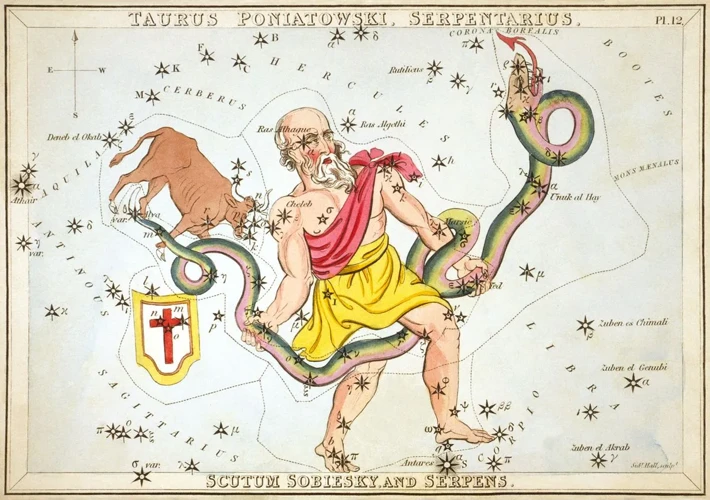
The scientific validity of zodiac signs is a topic that has sparked much debate and skepticism. While astrology has been practiced for thousands of years and holds significant cultural and historical value, it is important to distinguish between astrology as a belief system and astrology as a scientific discipline. In the scientific community, there is limited evidence supporting the direct correlation between zodiac signs and personality traits or life outcomes. Critics argue that the general descriptions associated with each zodiac sign can be vague and applicable to a wide range of individuals. Additionally, scientific studies examining the relationship between zodiac signs and personality have often produced inconsistent or inconclusive results. It is important to note that astrology operates on a different framework than traditional scientific methods, focusing on the belief that celestial bodies can influence human behavior and personality. As such, astrology is often considered a pseudoscience by the scientific community. However, it is worth acknowledging that many individuals find personal meaning and guidance in astrology, and it continues to thrive as a popular belief system. Ultimately, the validity of zodiac signs lies in the eye of the beholder, with some embracing astrology as a tool for self-reflection and others dismissing it as a matter of personal interpretation.
Impact of Zodiac Signs in Popular Culture
The influence of zodiac signs extends far beyond astrology and has made a significant impact in popular culture. From horoscope columns in newspapers and magazines to online quizzes and personality assessments, zodiac signs have become a mainstream topic of interest. People not only identify with their individual zodiac sign but also explore compatibility with others based on their signs. This fascination with zodiac signs has given rise to a plethora of zodiac-themed merchandise, ranging from clothing and jewelry to home decor and even tattoos. Zodiac signs have also found their way into entertainment, with many movies, TV shows, and books incorporating astrological themes and character traits based on the zodiac. Social media platforms have become platforms for zodiac sign memes and discussions, connecting people from around the world who share a mutual interest in astrology. Some individuals even align their personal style, career choices, and hobbies to their zodiac sign in order to express their unique characteristics. The impact of zodiac signs in popular culture is undeniable, capturing the fascination and imagination of people from all walks of life. Whether you are a skeptic or a believer, the presence and influence of zodiac signs in popular culture cannot be ignored.
Conclusion
In conclusion, the history and origins of zodiac signs are deeply rooted in ancient civilizations and their belief in the influence of the celestial bodies on human lives. From the ancient Mesopotamians to the Babylonians and Greeks, the development and understanding of zodiac signs have evolved over time. The twelve zodiac signs as we know them today have been shaped by the contributions of various cultures, each with its own unique zodiac system. The Hindu, Chinese, and Celtic zodiacs offer alternative perspectives and interpretations of astrology. The personality traits associated with each zodiac sign provide a framework for understanding individual characteristics and behaviors, allowing people to gain insights into themselves and their relationships. However, it is important to note that the scientific validity of astrology and zodiac signs remains a subject of debate. While astrology continues to be popular and influential in popular culture, its scientific foundations are questioned by skeptics. Nevertheless, astrology and zodiac signs continue to captivate and fascinate people around the world, providing a lens through which they can explore their identities and seek guidance. Whether you believe in the power of the stars or view astrology as merely a form of entertainment, the history and origins of zodiac signs offer a rich and intriguing tapestry of human curiosity and desire to understand the mysteries of the universe.
Frequently Asked Questions
How accurate are zodiac signs in predicting personality traits?
The accuracy of zodiac signs in predicting personality traits varies from person to person. While many people resonate with the descriptions associated with their zodiac sign, it’s important to remember that astrology is not a conclusive science. Factors such as upbringing, environment, and personal choices also play a significant role in shaping an individual’s personality.
Can my zodiac sign determine my compatibility with others?
Zodiac signs can provide insight into potential compatibility between individuals, but it’s not the sole factor. Relationships are complex and multifaceted, influenced by various aspects such as values, communication, and emotional connection. While zodiac signs can offer a starting point for understanding compatibility, individual experiences and personal growth also play crucial roles.
Are there more than twelve zodiac signs?
Traditionally, astrology recognizes twelve zodiac signs. However, an additional sign called Ophiuchus, represented by a serpent, has gained attention in recent years. Despite this, most astrologers continue to work with the twelve classic zodiac signs that have been used for centuries.
What is the difference between sun sign and rising sign?
The sun sign represents the position of the Sun at the time of your birth and is commonly associated with your core identity. The rising sign, on the other hand, refers to the zodiac sign that was rising on the horizon at the exact moment of your birth. It influences how others perceive you and can reflect your outward personality and physical appearance.
Do zodiac signs have any connection to the elements?
Yes, zodiac signs are associated with four elements: fire, earth, air, and water. Fire signs (Aries, Leo, Sagittarius) are passionate and energetic, earth signs (Taurus, Virgo, Capricorn) are practical and grounded, air signs (Gemini, Libra, Aquarius) are intellectual and sociable, and water signs (Cancer, Scorpio, Pisces) are emotional and intuitive.
What is the significance of the Chinese zodiac?
The Chinese zodiac is based on a twelve-year cycle, with each year associated with an animal sign. It is used to determine a person’s traits, compatibility, and life patterns. The Chinese zodiac has deep cultural significance in Chinese astrology and is widely followed and celebrated in Chinese communities around the world.
Is astrology considered a science?
Astrology is not considered a science in the same way that physics or chemistry are. It is often regarded as a pseudoscience since it does not follow the scientific method and lacks empirical evidence. However, astrology continues to captivate people’s interest and is viewed by many as a valuable tool for self-reflection and personal growth.
Can my zodiac sign change over time?
No, your zodiac sign does not change over time. It is determined by the position of the Sun at the time of your birth. However, other astrological factors such as the movement of planets can influence different aspects of your life and personality as time progresses.
What role do zodiac signs play in popular culture?
Zodiac signs have a significant role in popular culture, appearing in various forms of media such as books, movies, and music. They often contribute to the creation of fictional characters and play a role in horoscopes, personality quizzes, and entertainment articles. Many people also enjoy identifying with their zodiac sign as a form of self-expression and identity.
Can zodiac signs provide guidance for important life decisions?
Zodiac signs can offer guidance and insights, but they should not be the sole factor in making important life decisions. It is important to consider multiple perspectives, personal values, and practical considerations when making choices that can significantly impact your life. Astrology can be a tool for self-reflection, but ultimately, the decisions are yours to make.








